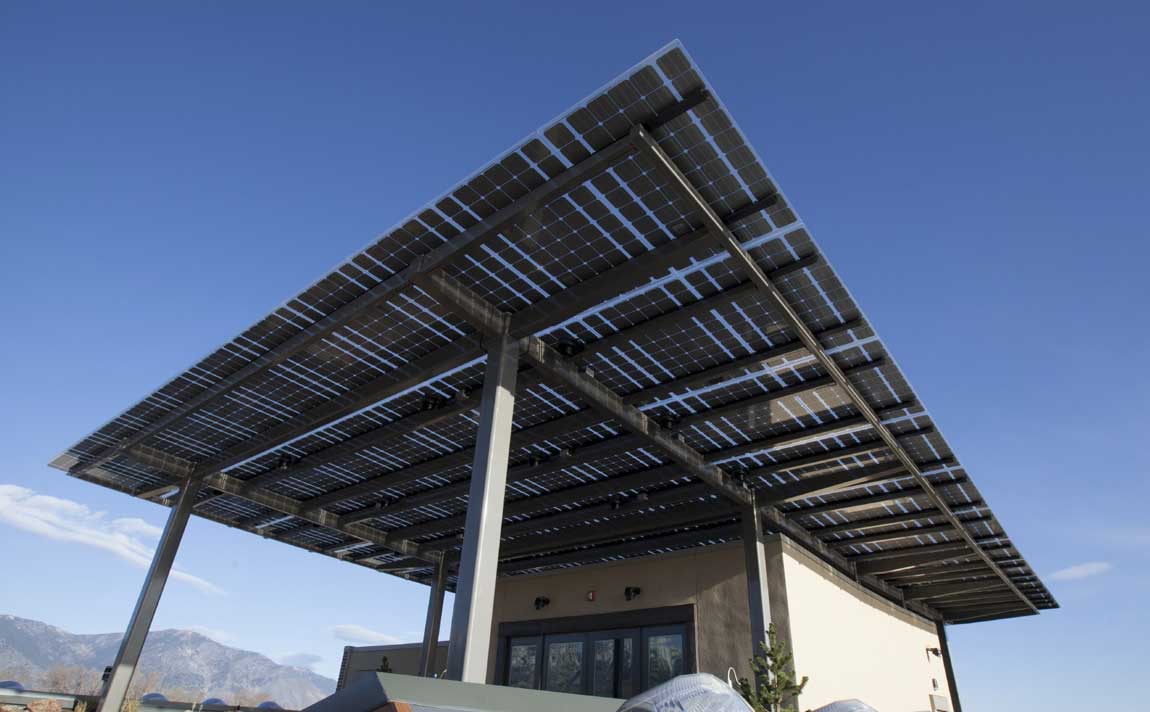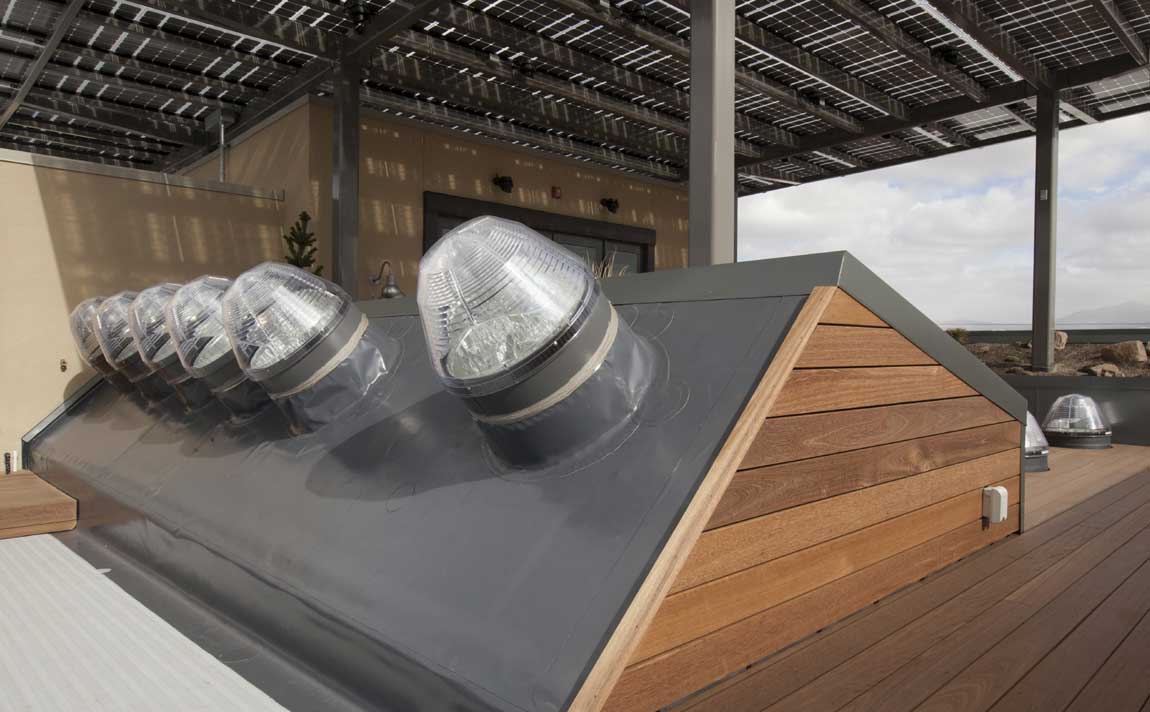With its sunny and arid climate, Carson Valley offers unique opportunities in the forms of solar and geothermal energy. Utilizing both above and below ground resources, this building takes advantage of its environment to save energy.
With its sunny and arid climate, Carson Valley offers unique opportunities in the forms of solar and geothermal energy. Utilizing both above and below ground resources, this building takes advantage of its environment to save energy.
Ground temperatures in the Carson Valley are a consistent temperature year-round, making it ideal for ground source heat pump systems, so the design team decided to capitalize on that. The team drilled sixteen 350-foot-deep bores for a heat pump system that transfers heat to and from the ground, leading to massive energy savings.

Solar panels were installed on the roof, dramatically adding to these savings. They also create shade for the outdoor patio portion of the roof.

The building is oriented in a southward manner, so it’s situated perfectly for natural lightning. Bently capitalized on this with interior walls that allow for natural ambient lighting, and enhancing natural light in every space possible.
© Cesar Rubio
…electric bills that look like they are still from 1906.
Daniel Krivens, Senior Designer, NicholsBooth Architects
While acquiring energy from eco–friendly means is well and good, that energy must still be used wisely. To this end, the building uses occupant sensors to conserve energy in unused areas. The office and public spaces were designed to efficiently make use of natural daylighting via skylights and light wells — miniature skylights with reflective duct that enhances natural light in key areas. In total, these systems are expected to save 62% of the energy a building of its scope would normally use, with new systems like ground source heat wells contributing to 37% of the building’s overall energy savings.

New systems like the ground source heat exchange will save 37% of the building’s energy use.
Calculated the way LEED requires for energy savings (including the photovoltaic system), this building saves 62% of the energy a building of its scope would normally use.
The latest solar panel calculations show that they are covering 39% of the building’s energy.